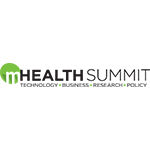In the realm of global healthcare interoperability, a significant majority of vendors are currently leveraging APIs to expand the functionality of Electronic Health Records (EHR), as reported by the Office of the National Coordinator for Health Information Technology (ONC). The agency’s recent national survey of digital health companies reveals that 73% of them are utilizing standards-based application programming interfaces, with a predominant use of the Fast Healthcare Interoperability Resources (FHIR) standard.
According to a study published in the Journal of the American Medical Informatics Association (JAMIA), the healthcare technology companies surveyed demonstrated high adoption rates of the FHIR standard. Interestingly, EHR companies not only implemented standards-based APIs but also made them available to third-party users well before the mandated deadline of December 31, 2022, which required the use of HL7’s FHIR standard for certified APIs.
The study further discloses that 57% of respondents use both standards-based and proprietary APIs for EHR integration, with 24% working equally with both types. However, the adoption of standards-based APIs is not without challenges, as companies face barriers such as high fees, lack of realistic clinical testing data, and insufficient data elements of interest or value.
Authors of the ONC study, Wes Barker, Catherine Strawley, and Benjamin Rosner, emphasize that these findings align with concerns raised by members of the health IT community, particularly app developers and digital health companies. These concerns revolve around the limited scope of current certified APIs and entry barriers like fees, data access, and developer support, hindering the realization of APIs “without special effort” as mandated by the 21st Century Cures Act.
To address some persistent barriers, ONC’s recent HTI-1 final rule has specific requirements aimed at reducing the effort required to use APIs. Notably, standardizing requirements for publishing electronic FHIR endpoints and adopting the United States Core Data for Interoperability version 3 (USCDI v3) are crucial steps. The ONC has established that USCDI v3 is the only version required within the Certification Program from January 1, 2026. Breach of information blocking rules poses potential financial consequences for noncompliant healthcare providers, as outlined in the Cures Act, which emphasizes secure, programmatic access to patients’ electronic health information since its codification in 2016.

























